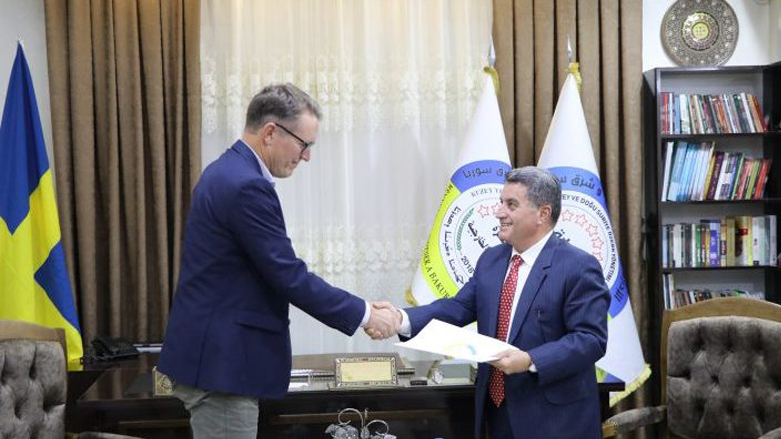Sweden repatriates ISIS-affiliated women in Syria, their children
“This brings the total number of Swedish nationals repatriated from NES (Northeast Syria) to 16.”

ERBIL (Kurdistan 24) – The Kurdish-led civilian administration in northeast Syria, officially called the Autonomous Administration of North and East Syria (AANES), handed over nine Swedish nationals, including three women and their six children, to a Swedish delegation on Tuesday
“This brings the total number of Swedish nationals repatriated from NES (Northeast Syria) to 16,” the Syria-based Rojava Information Center (RIC) said.
A Swedish delegation has met with the AANES Department of Foreign Affairs in order to repatriate 9 Swedish nationals, including 3 women and 6 children. This brings the total number of Swedish nationals repatriated from NES to 16.
— Rojava Information Center (@RojavaIC) September 7, 2021
During the meeting, the co-chair of the Foreign Relations Department of the local administration, Abdul Karim Omar, stressed that “if the international community does not support this area economically, it will be an opportunity for ISIS to reorganize itself here.”
Swedish Ambassador Fredrik Florn thanked the Syrian Kurds on behalf of Sweden for the “sacrifices they have made in the fight against terrorism”, the local ANHA news agency reported.
“We consider you as our partners and we stand shoulder to shoulder in this fight,” he said. “This is a very important message that I want to convey to you.”
“We understand the very difficult situation you are facing and we are very happy to cooperate with you to address these issues out of trust and cooperation,” he added.
There are fears among local officials, diplomats, and humanitarian actors over worsening economic conditions, failing agriculture crops and increasing water shortages in northeast Syria.
There is a fear that such shortages could lead to protests and unrest in northeast Syria. In the past, this resulted in protests and instability in parts of Manbij as well as Deir al-Zor and Hasakah provinces.
Moreover, there is mounting international pressure for governments to bring home children lingering in the camps that they have lived in since the fall of ISIS’s so-called caliphate in early 2019.
Violence and even murder is rampant in the camps and international aid groups say the children lack the kind of support services needed to prevent them from become future security risks.
Both the SDF and the civilian Autonomous Administration in northeast Syria have publicly called on foreign countries to repatriate their citizens.